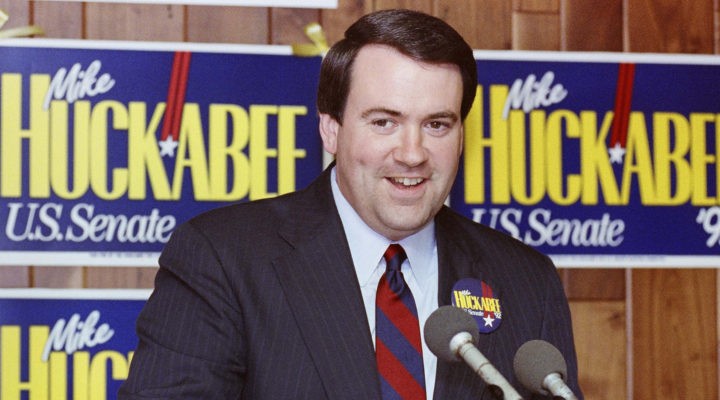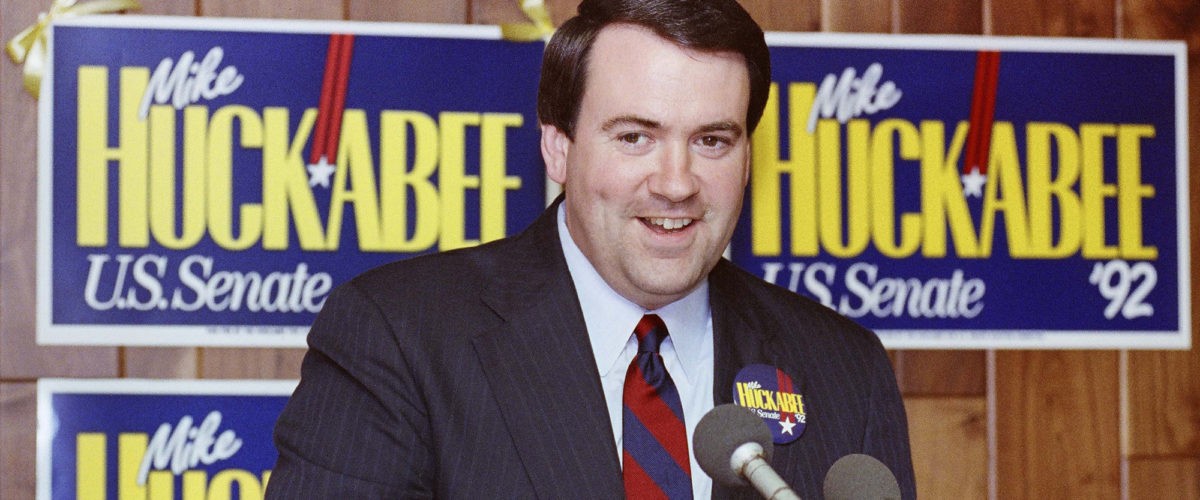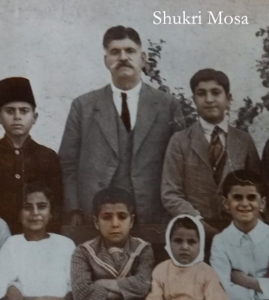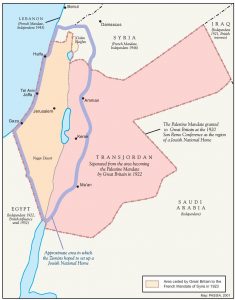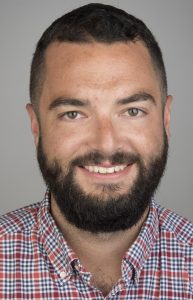President-elect Donald Trump named Mike Huckabee as his choice to be the United States ambassador to Israel. Huckabee, of course, was a Southern Baptist minister before getting involved in rightwing media and politics. His faith has been a central feature of his political career and Israel a central feature of that faith.
Huckabee has led dozens of Holy Land tours since the 1980s (more than 100, by his count) and for decades has been an outspoken Christian Zionist, preaching that the Land of Israel was given by God to the Jewish people.
Such views have not been uncommon among Huckabee’s fellow Southern Baptists. Prominent Southern Baptists like W.A. Criswell and Ed McAteer played leading roles in organizing American Christian Zionism as a movement. The Southern Baptist Convention repeatedly has passed pro-Israel resolutions in recent decades.
During Trump’s first administration, Robert Jeffress of First Baptist Church of Dallas was tapped to lead a prayer at the opening of the U.S. Embassy at Jerusalem in 2018. When people think of Southern Baptists and Israel, they quite reasonably think of Christian Zionism.
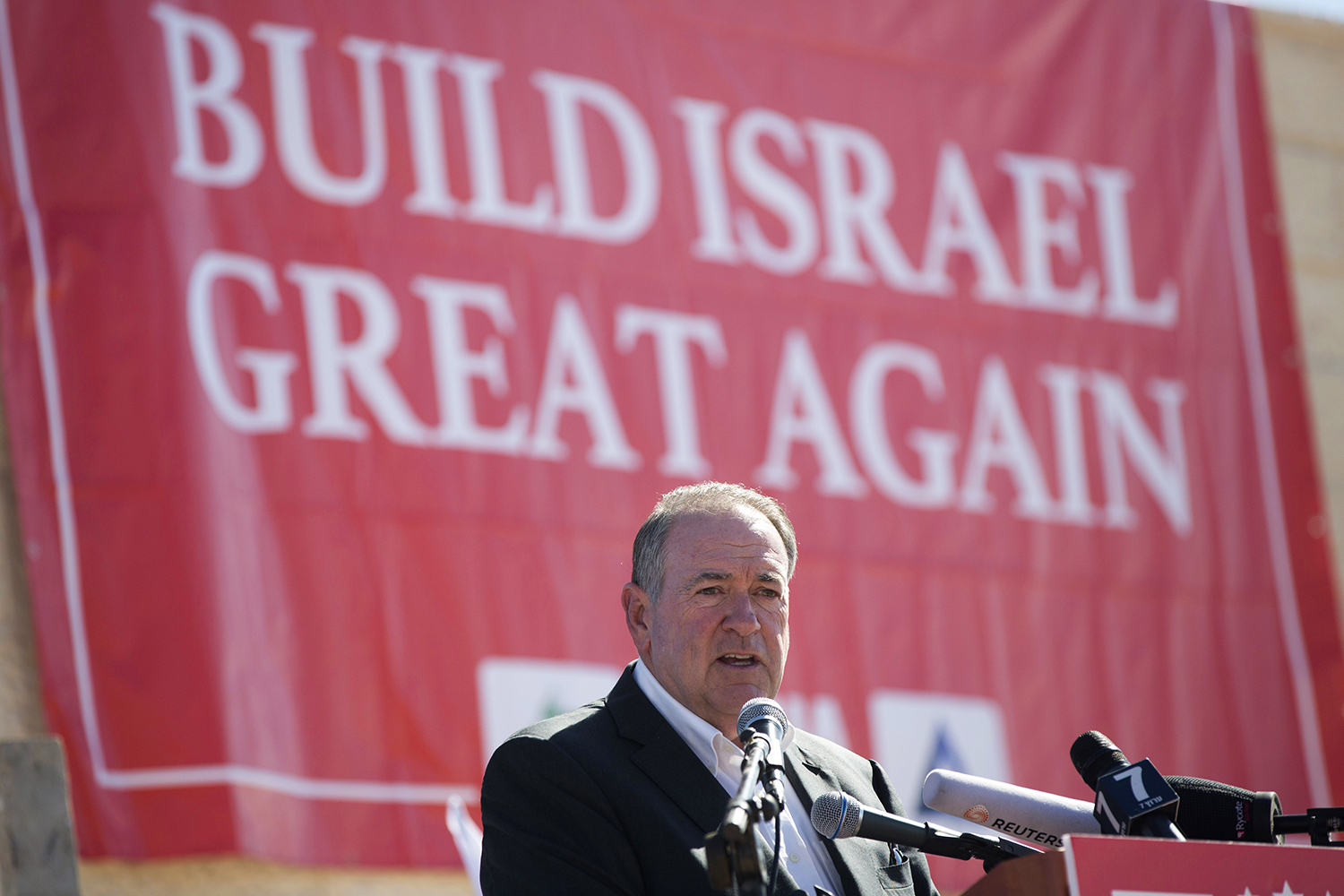
Gov. Mike Huckabee, R-Ark., takes questions from the media, prior to laying a brick at a new housing complex in the West Bank settlement of Efrat, Aug. 1, 2018. .(AP Photo/Oded Balilty, File)
History of SBC relations with Israel
However, Christian Zionism has not always had such a hold on Southern Baptists. And looking into the history of the SBC’s connections to Israel/Palestine reveals a perhaps surprising truth: that the SBC’s oldest, most direct ties to the Holy Land were established by a Palestinian Arab.
His name was Shukri Mosa. He had been born to a Greek Catholic family in Safed and made a living working for the postal service in Ottoman Palestine. In 1908, though, he came to the United States, hoping to find riches he could take back to his wife, Munira, and their children. Instead, he found influential Southern Baptists George Truett and L.R. Scarborough while peddling Holy Land souvenirs in Texas. The two guided Mosa to accept baptism as a Baptist. He soon resolved on building a mission in his home country.
Mosa returned to Ottoman Palestine in 1910. Within months, he guided Munira, who was herself from a prominent Arab Protestant family, and their nephew, Louis Hanna, to conversion. The next year, he established a mission at Nazareth — “the Lord’s home city,” as his letterhead would proclaim — and sent Hanna to train under Scarborough at Southwestern Baptist Theological Seminary in Fort Worth, Texas (the same seminary Mike Huckabee would attend decades later).
Initially supported by the Illinois Baptist Missionary Convention, the mission came under SBC control after World War I. It had barely survived the war years — Mosa had been conscripted into the Ottoman military — but it had survived. Only 10 of the converts he had won prior to the war remained. “1 died, 1 backed,” he reported, “1 because of the great tribulation of the war sheltered himself in the Roman Catholic’s convent … & the rest 3 are in different parts of America.”
With the greater resources of the SBC, though, Mosa was certain their community would grow. His dream was to build a permanent church building and establish a Baptist school in Nazareth. He and Munira set about growing the work together. Before long, they were holding seven meetings each week in addition to Sunday services and Sunday school. Although converts were few, the meetings were well-attended. Munira’s Thursday night meetings for women were a particular draw.
Missionaries sent
Although the Mosas had founded the mission, the SBC Foreign Mission Board categorized them as “native workers” and began sending American missionaries to lead the work. The first was a Texas pastor named W.A. Hamlett, who almost destroyed the mission by making a flurry of extravagant promises and then quitting after only a few weeks. (Hamlett soon reemerged as a traveling spokesman for the Ku Klux Klan and editor of its Kourier magazine.) More successful was J. Wash Watts, who arrived in 1923. Watts gave the Mosas relative autonomy in Nazareth and was generally supportive of their priorities — especially the establishment of an actual church.
These were the years of the British Mandate. During the war, the British had conquered Palestine from the Ottoman Empire and, soon after, been granted a League of Nations mandate to rule Palestine as a trustee. The idea behind the mandate system was that the ruling powers would prepare their territories for eventual self-government.
Written into the Palestine mandate, though, was Britain’s wartime promise to the leaders of the Zionist movement that it would facilitate the creation of a Jewish “national home” in Palestine — a territory that then had an overwhelming Arab majority. Although a trickle of Zionist settlement in Palestine had begun prior to World War I, it picked up dramatically with this official British backing.
Shukri Mosa watched with concern the arrival of “these new Jews” who were so different from Palestine’s existing Jewish population. In 1922, he reported to the Baptist Standard of Texas that “they are very proud, their noses are very up high thinking that they are coming to be kings over the inhabitants.”
Always, Mosa tied his concerns over Zionism to his main mission priorities — building a church and a school. Zionist settlement, he warned Southern Baptists, was sending land prices and rents higher. Southern Baptists needed to act, so that the Galilee “may be turned to the Great Galilean.”
Visitors from Texas
The following year, the tiny Baptist community of Nazareth was visited by a tourist party that included the Texans who had guided Mosa to the Baptist faith. The group pledged $2,500 for the purchase of land that would be used to build a church building. To that was soon added a $10,000 donation from a wealthy Southern Baptist family, which paid for the construction of a church building at the heart of Nazareth near Mary’s Well.
The church was dedicated on May 3, 1927. Within months, 13 new members joined the congregation.
This joyous new beginning was soon marked by tragedy. Shukri Mosa died unexpectedly the following year. It was a shock to the budding community, but the work carried on. Munira stayed on for a few years as a Bible woman and Louis Hanna, who had returned to Texas for college, was called by the congregation to serve as their new pastor. In 1935, he and his American wife, Velora, established a day school that would evolve into the Nazareth Baptist School — another of his uncle’s dreams realized.
The following years would bring dire challenges as Palestine was torn apart by partition and war. When the 1948-1949 war that established the State of Israel ended — what Palestinians call the Nakba — the Arab Baptists of Nazareth found themselves inside the Jewish state, cut off from friends and family by armistice lines that had hardened into borders, and subject to military rule inside a country that had been founded around them.
The community survived, though. It survives still. And the church and the school that Shukri Mosa dreamed of still stand at the heart of Nazareth.
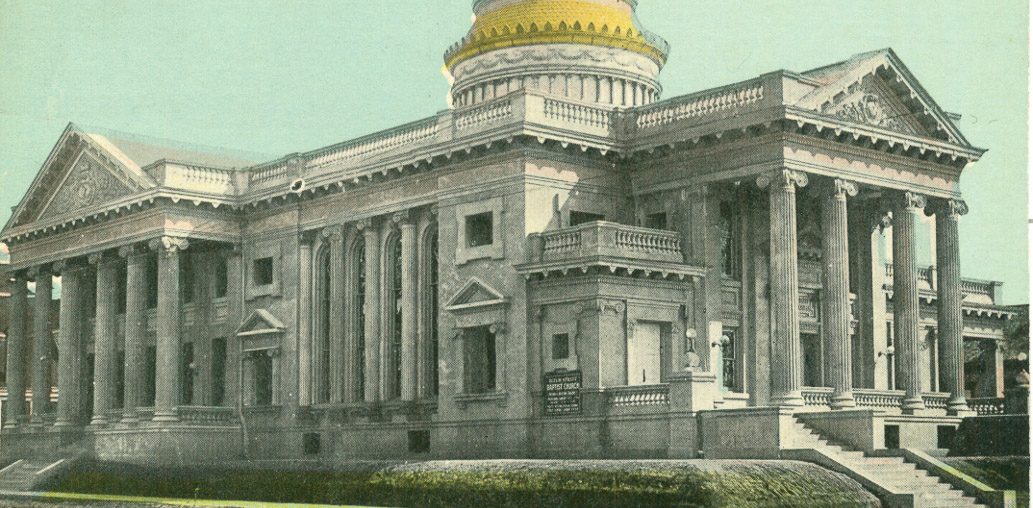
Postcard showing building of Beech Street Baptist Church in Texarkana, Ark. (Courtesy of Florida Baptist Historical Society)
An unbelievable connection
Mike Huckabee might not feel a connection to this history or to this community. He has denied the very notion of a distinct Palestinian Arab identity. However, his roots and theirs are intertwined — and more closely than the simple fact of common denominational affiliation.
The last pulpit Huckabee occupied before leaping fully into a political career was that of Beech Street Baptist Church in Texarkana, Ark. Decades prior to Huckabee’s arrival, Beech Street had been the home church of George and Ida Bottoms, who had built a fortune operating sawmills in Texarkana. Devoted Southern Baptists, they poured much of that fortune into denominational causes, including their own church. Beech Street actually stands on land they purchased for the congregation at the beginning of the 20th century.
It wasn’t the only church they helped fund. In 1924, the year George died, it was Ida Bottoms who answered Shukri Mosa’s call to fund the construction of a Baptist church in Nazareth. And when this church was first dedicated — a church that represented the hopes of the small Arab Baptist community of Nazareth — it bore the name of those Baptists from the congregation Huckabee would later lead: Bottoms Memorial Baptist Church.
Walker Robins serves as assistant professor of practice in the Department of Political Science, Policy and History at Merrimack College. He is the author of Between Dixie and Zion: Southern Baptists and Palestine before Israel.
Related articles:
Trump taps Mike Huckabee as ambassador to Israel
Bachmann and Huckabee named most influential Christian Zionists

